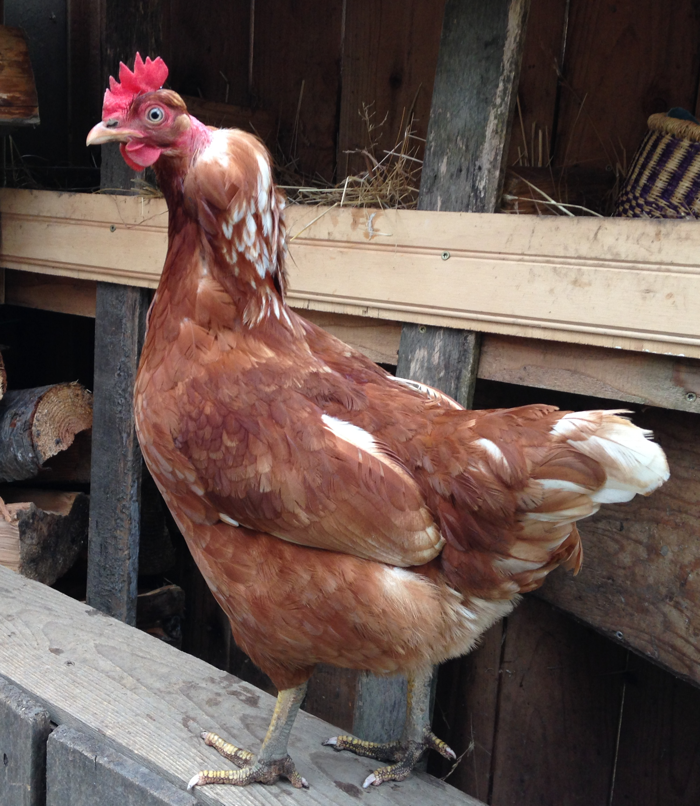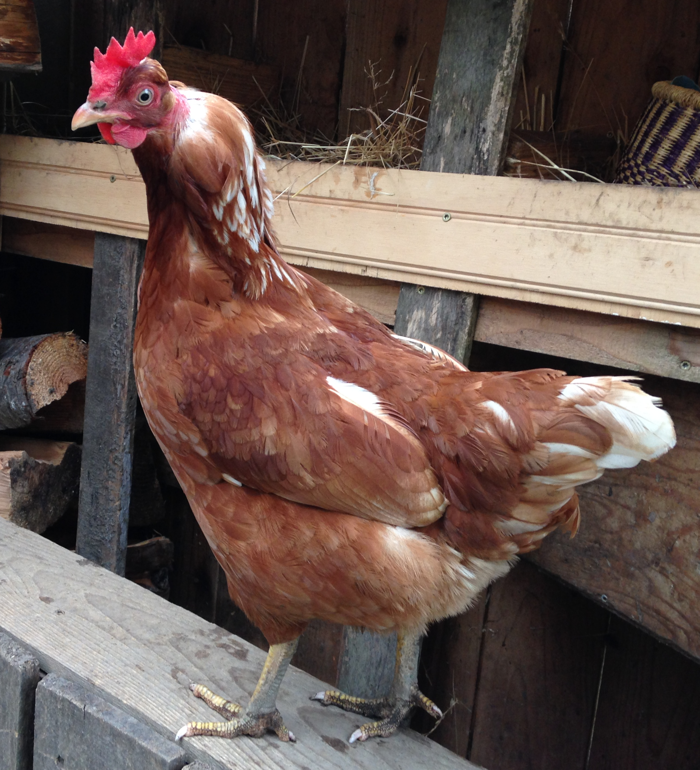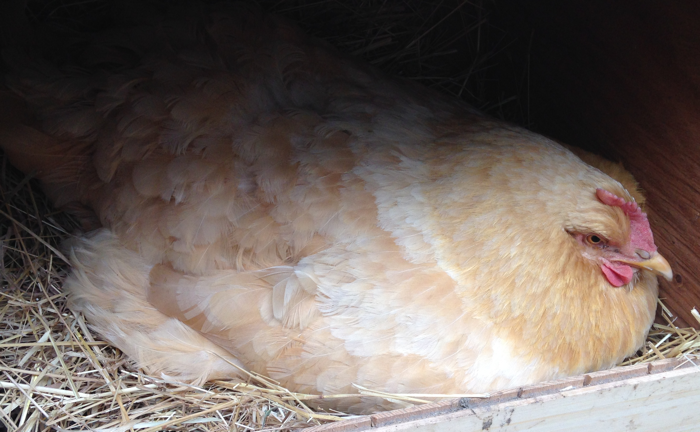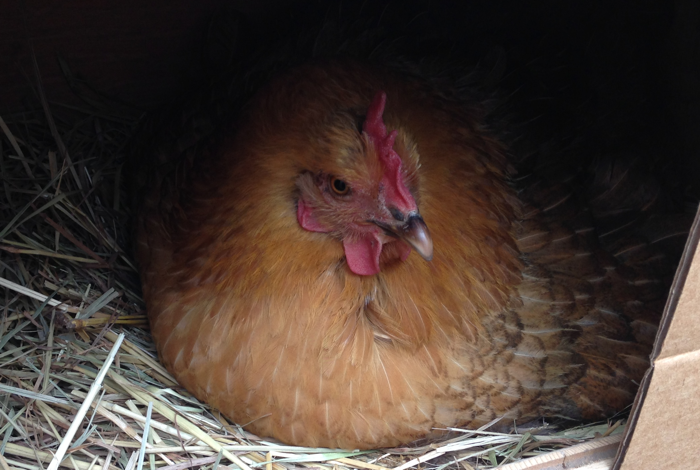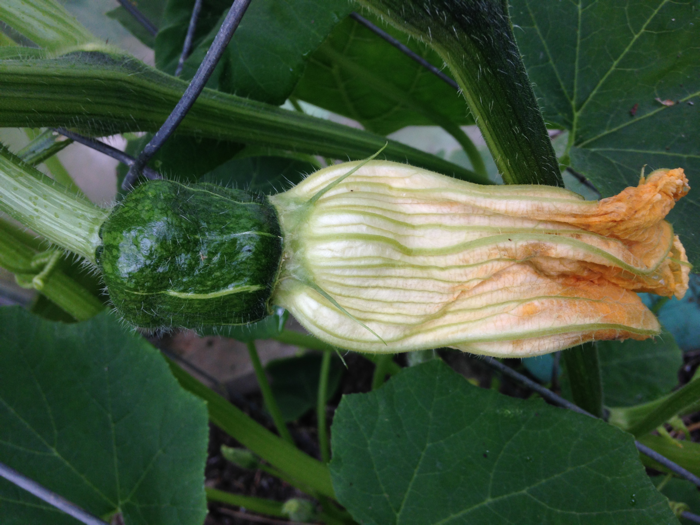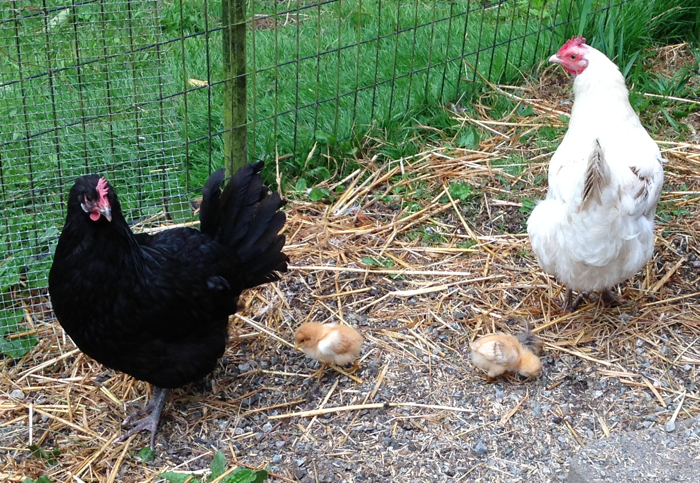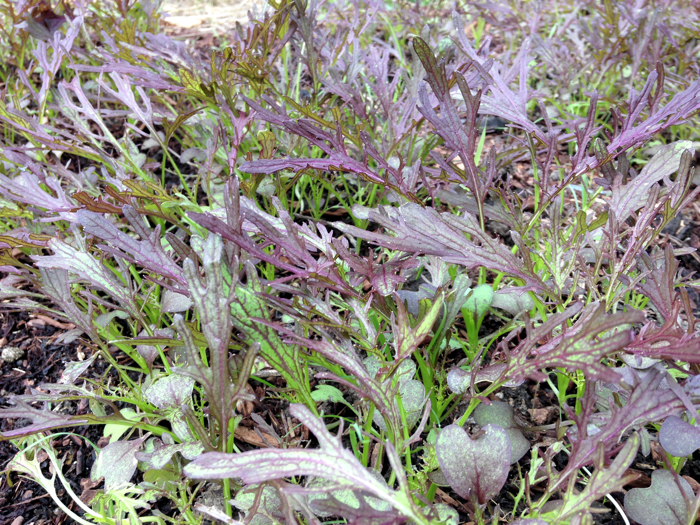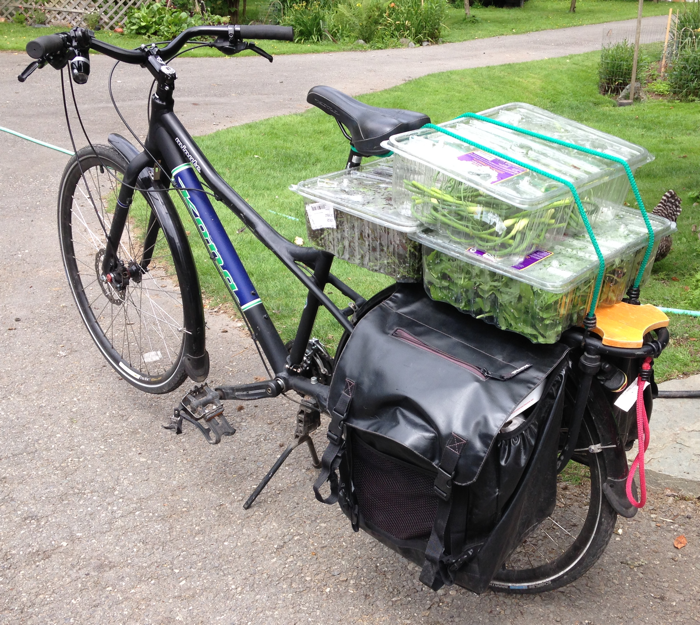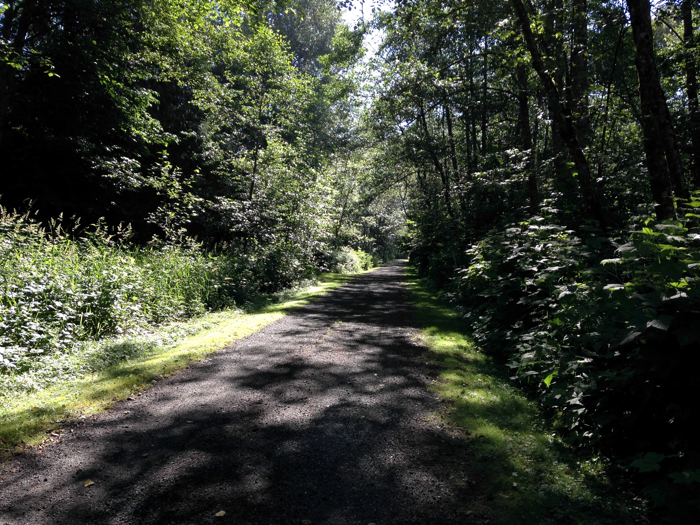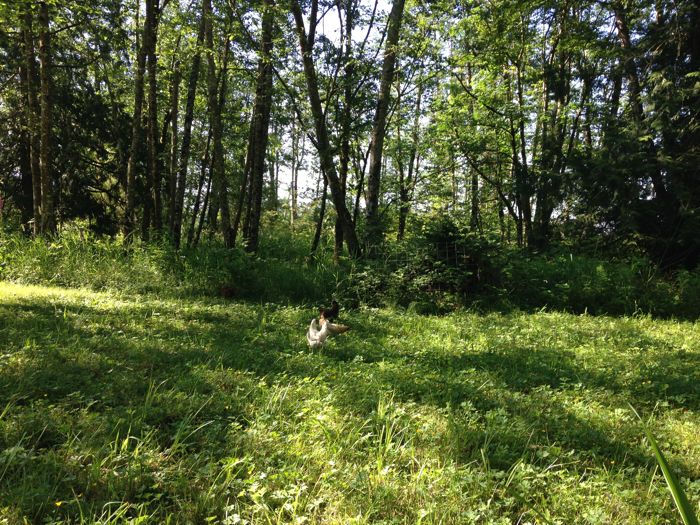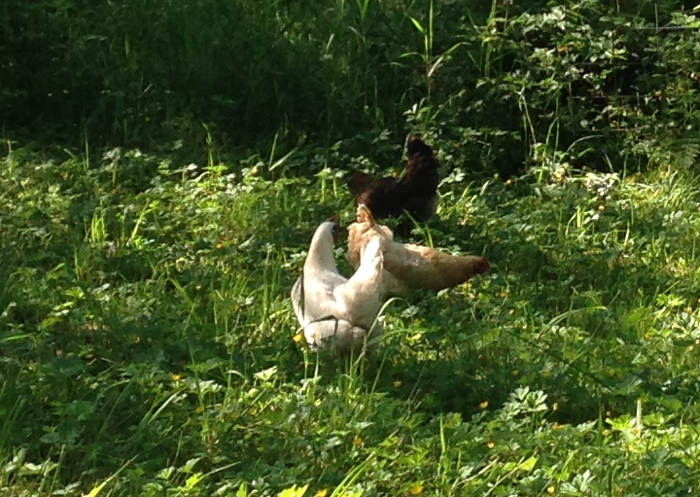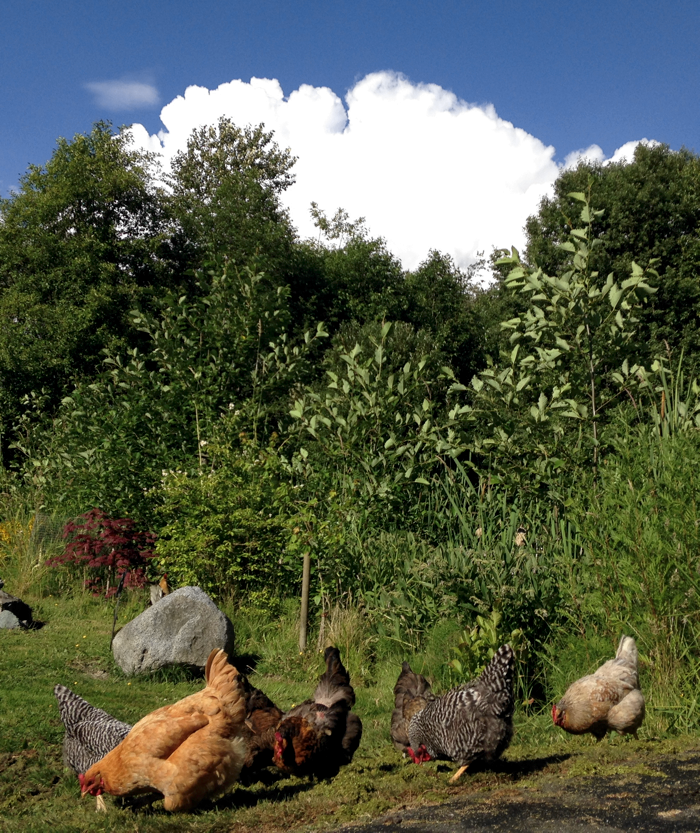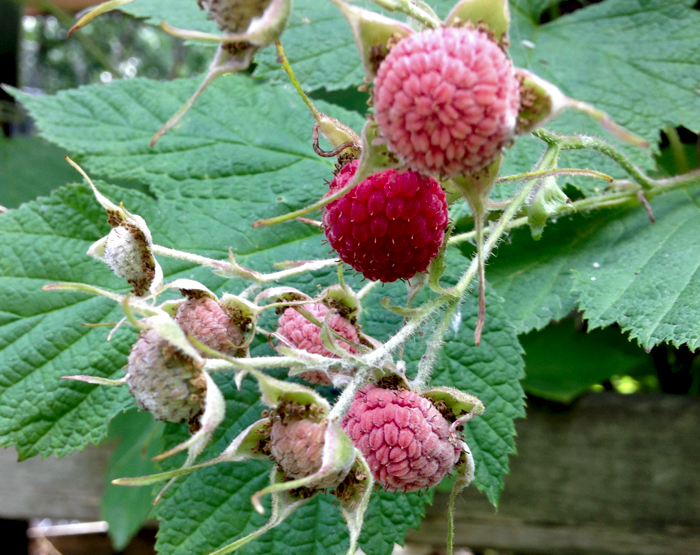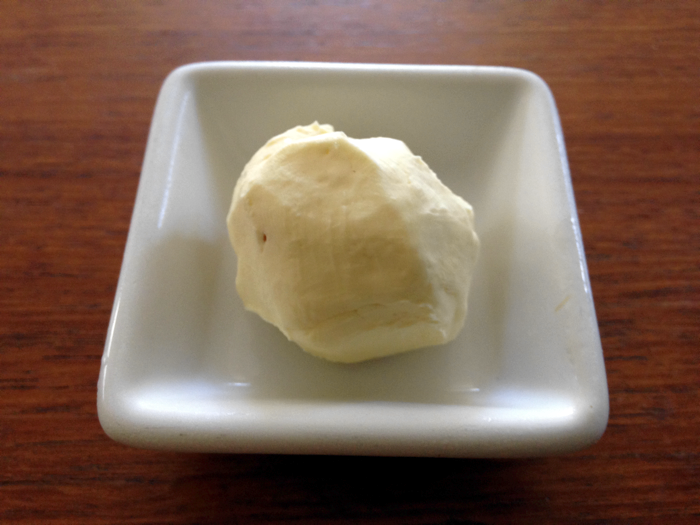
Yesterday I had a bit of cream left, maybe a cup and a half, so I set it out in a bowl to culture overnight to churn it into butter this morning. I ended up with a small ball of butter. It got me thinking into how little selection people have anymore when it comes to buying things like butter. It’s all made in vast quantities by just a handful of companies.
Yet, the milk from every cow is slightly different. The milk a cow produces each day is slightly different, depending on the season and what she ate recently. Even the weather has an effect on the milk. Did she just spend a peaceful, stress free day in warm sunshine, or was it cold and dreary with a cantankerous farmer thrown into the mix? The milk from each farm varies as the vegetation the cows eat and the soil the vegetation grows on varies from farm to farm.
But all of those wonderful differences are erased in modern food production and we end up with endless quantities of the same tasting butter no matter when or where we shop. Food safety regulations make it cost prohibitive for small, single farm dairies to exist. Which is sad as flavors which stand out occur at the micro scale, not the macro scale where everything is blended together.
When you make your own butter, you get to decide how much buttermilk you squeeze out of the butter. This changes the consistency and taste of the butter. You get to decide how long to let your butter age on the counter at room temperature. Are you going to add a bit of yoghurt to help age the butter? If so, what kind of yoghurt are you going to use? Are you going to churn it by hand or with a mixer? You get to decide which farm’s cream to use. All of these things affect the taste of the butter you make.
If there were hundreds of small single, farm dairies within a short distance of a city, those living in the city could have a tantalizing variety of butters to choose. People would be keenly aware of the difference between spring and fall butter, the difference between summer and winter butter. There would be prized, single-cow butters. Food critics would wax eloquently about the exquisite taste of Bertha’s butter from the McMann farm, or the robust flavor of Molly’s butter from the Svenson farm, or the sublime essence of Henrietta’s butter from the Amstutz farm. Life would be infinitely more fun!
The last decade we’ve witnessed beer being liberated from the huge breweries. Now there are thousands of local breweries delivering a variety of beers unimaginable twenty years ago. It’s time for a dairy liberation and a proliferation of butter, milk, and cream varieties. Hopefully, twenty years from now we will look back and wonder how we managed with just a handful of butters on the grocery shelves.
Also see:
